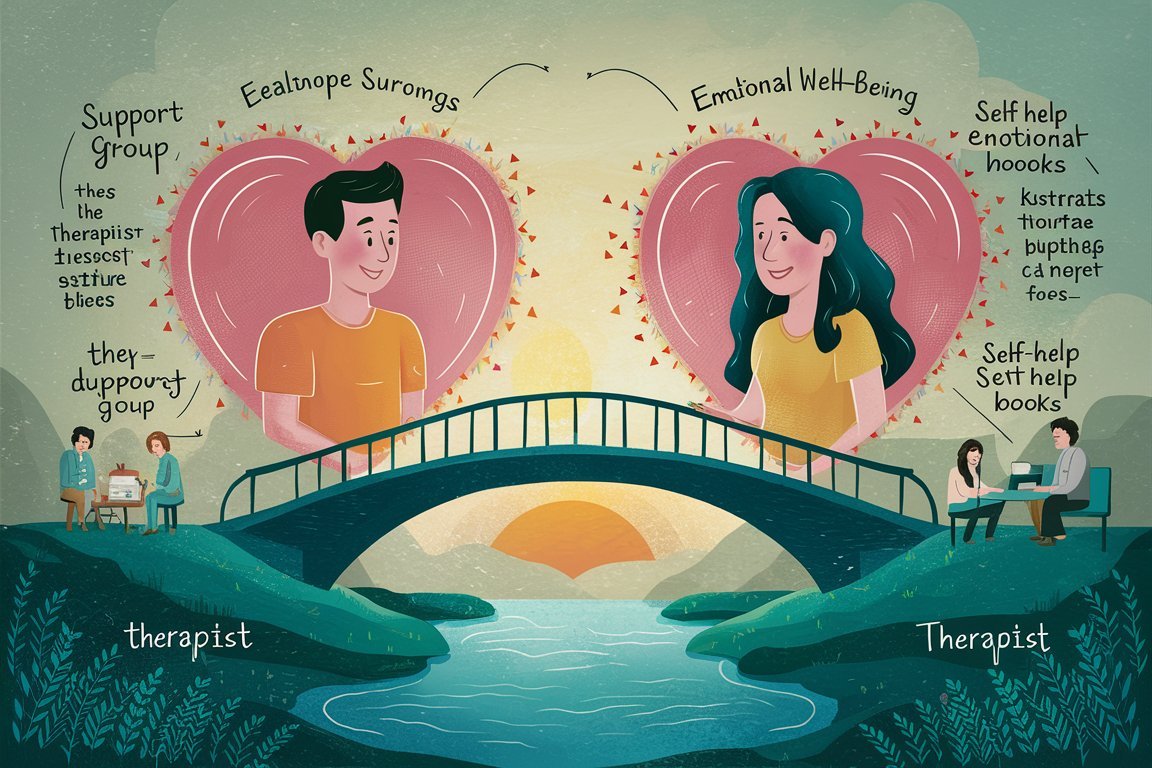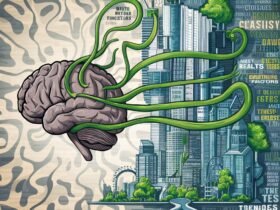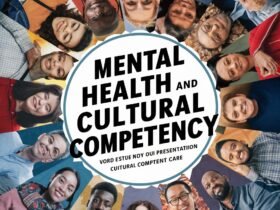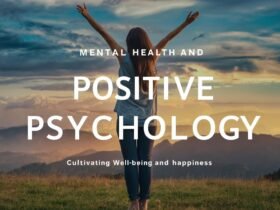Mental Health and Relationships: Building Healthy Connections
Hey there, young friends! Today, we’re going to talk about something that’s super important for your happiness and well-being – mental health and relationships.
Now, I know that might sound a little grown-up and serious, but don’t worry – we’re going to break it down and make it easy to understand. Because the truth is, taking care of your mental health and building healthy relationships is something that’s important for everyone, no matter how old you are.
First of all, let’s talk about what we mean by mental health. Mental health is all about how you think, feel, and act. It’s about your emotions, your thoughts, and your behavior.
Just like you need to take care of your physical health by eating healthy foods, getting enough sleep, and exercising, you also need to take care of your mental health. That means learning how to manage your emotions, cope with stress and challenges, and build positive relationships with the people around you.
Why Relationships Matter for Mental Health
So, why are relationships so important for mental health? Well, think about it – humans are social creatures. We need connection and interaction with others to thrive and feel good.
When we have positive, supportive relationships in our lives, it can:
- Boost our mood and make us feel happier
- Help us feel more confident and secure
- Provide a sense of belonging and purpose
- Give us someone to turn to when we’re struggling or need support
On the other hand, when we have negative or unhealthy relationships, it can:
- Make us feel stressed, anxious, or depressed
- Lower our self-esteem and self-worth
- Lead to feelings of loneliness and isolation
- Make it harder to cope with life’s challenges
So, as you can see, the quality of our relationships can have a big impact on our mental health and overall well-being.
Building Healthy Relationships
Okay, so now that we know why relationships are so important for mental health, let’s talk about how to build healthy ones.
Communicate openly and honestly
One of the most important things in any relationship is communication. That means being open and honest about your thoughts, feelings, and needs.
If something is bothering you or you’re feeling upset, don’t bottle it up inside. Talk to the person you’re in a relationship with, whether it’s a friend, family member, or romantic partner. Let them know how you’re feeling and what you need from them.
At the same time, be a good listener. When the other person is talking, give them your full attention and try to understand their perspective. Don’t interrupt or jump to conclusions – really listen and try to see things from their point of view.
Show respect and kindness
Another key to healthy relationships is showing respect and kindness to the other person. That means treating them with compassion, empathy, and understanding.
Even if you disagree with someone or are going through a tough time, try to approach the situation with kindness and respect. Don’t say or do things that are hurtful or mean – instead, try to find a way to express yourself that is honest but also respectful.
Set boundaries and respect each other’s needs
In any relationship, it’s important to set boundaries and respect each other’s needs. That means being clear about what you’re comfortable with and what you’re not, and respecting the other person’s boundaries as well.
For example, if you need some alone time to recharge and take care of yourself, let the other person know. If they need some space or have different interests or hobbies than you, respect that and don’t try to force them to be someone they’re not.
Practice forgiveness and letting go
No relationship is perfect, and there will be times when you or the other person makes a mistake or does something hurtful. When that happens, it’s important to practice forgiveness and letting go.
That doesn’t mean you have to forget what happened or pretend everything is okay if it’s not. But it does mean trying to understand the other person’s perspective, apologizing when you’ve done something wrong, and working together to find a solution and move forward.
Holding onto grudges or resentment will only hurt you in the long run – it’s important to learn how to forgive and let go when you can.
Seek support when you need it
Finally, remember that you don’t have to go through everything alone. If you’re struggling with a relationship or your mental health, it’s okay to seek support from others.
Talk to a trusted friend or family member, or consider reaching out to a mental health professional like a therapist or counselor. They can provide guidance, support, and tools to help you build healthier relationships and take care of your mental well-being.
Mental Health and Different Types of Relationships
Now that we’ve talked about some general tips for building healthy relationships, let’s take a closer look at how mental health can impact different types of relationships.
Family relationships
Family relationships can be some of the most important and influential in our lives. They shape our early experiences and can have a big impact on our mental health and well-being.
If you have a supportive, loving family, it can be a great source of comfort and strength. But if you have a family that is struggling or has a lot of conflict, it can be stressful and challenging.
If you’re dealing with family issues that are impacting your mental health, it’s important to seek support and find healthy ways to cope. That might mean setting boundaries, seeking therapy or counseling, or finding other sources of support outside of your family.
Friendships
Friendships are another important type of relationship that can have a big impact on our mental health. Having close, supportive friends can provide a sense of connection, belonging, and fun.
But friendships can also be challenging at times, especially as you navigate the ups and downs of growing up. You might experience conflicts, misunderstandings, or even the end of a friendship.
If you’re struggling with a friendship, try to communicate openly and honestly with your friend about how you’re feeling. If the friendship is no longer healthy or positive, it’s okay to set boundaries or even end the friendship if needed.
Remember, it’s quality over quantity when it comes to friendships. It’s better to have a few close, supportive friends than a lot of superficial or negative ones.
Romantic relationships
As you get older, you might start to experience romantic relationships as well. These can be exciting and fun, but they can also be complex and challenging.
It’s important to remember that a healthy romantic relationship should make you feel good about yourself and your life. It should be based on mutual respect, trust, and communication.
If you’re in a romantic relationship that feels unhealthy or is causing you stress or pain, it’s important to seek support and take steps to prioritize your own well-being. That might mean ending the relationship, seeking therapy or counseling, or finding other sources of support.
Putting It All Together
We covered a lot of ground today, didn’t we? But I hope you’re feeling more informed and empowered to take care of your mental health and build healthy relationships in your life.
Remember, mental health and relationships are closely connected. The quality of our relationships can have a big impact on our overall well-being and happiness.
By practicing open communication, showing respect and kindness, setting boundaries, practicing forgiveness, and seeking support when you need it, you can build strong, positive relationships that support your mental health and help you thrive.
And if you’re struggling with a relationship or your mental health, remember that you’re not alone. There are people and resources available to support you and help you find your way.
So keep shining bright, young friend. You have so much to offer the world, and with the right tools and support, you can build a life full of healthy, meaningful connections and a strong sense of mental well-being.
Helpful Resources
If you’re looking for more information and support related to mental health and relationships, here are some great resources to check out:
- Kids Health: https://kidshealth.org/en/kids/friend-problems.html
- National Alliance on Mental Illness (NAMI): https://www.nami.org/Your-Journey/Kids-Teens-and-Young-Adults
- The Trevor Project (for LGBTQ+ youth): https://www.thetrevorproject.org/
- National Parent Helpline: https://www.nationalparenthelpline.org/
Remember, seeking help and support is a sign of strength, not weakness. You’ve got this!
A Note to Parents and Caregivers
If you’re a parent or caregiver reading this, I want to take a moment to acknowledge the important role you play in supporting your child’s mental health and relationships.
It’s not always easy to know how to navigate these complex topics, but by being open, supportive, and non-judgmental, you can create a safe and nurturing environment for your child to grow and thrive.
Some tips for supporting your child’s mental health and relationships:
- Model healthy communication and relationships in your own life
- Make time to listen to your child and validate their feelings
- Encourage open and honest conversations about mental health and relationships













1 Comment